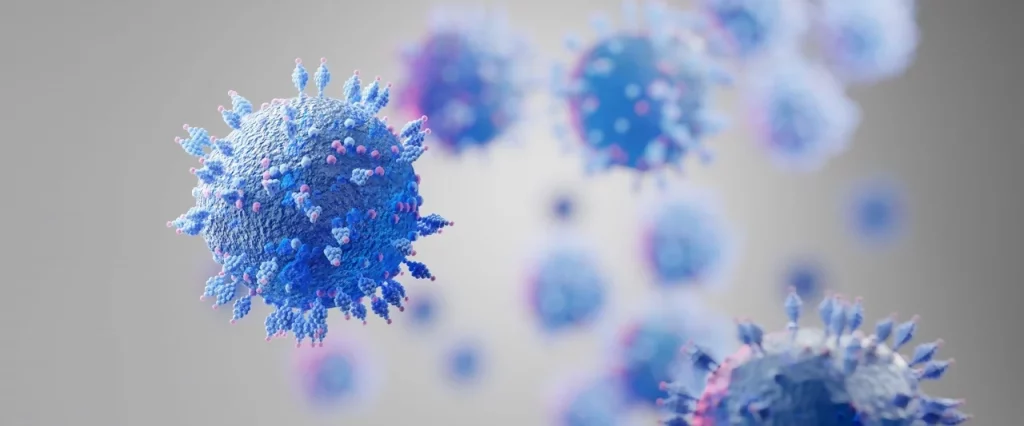SARS-CoV-2 Vaccine
Vaccines build long-lasting, active immunity against disease by helping the body’s ability to fight a virus.
There may be cases in which the vaccine does not prevent you from contracting the COVID-19 virus. However, if you do catch it, the vaccine could keep you from getting seriously ill or prevent complications.
Reasons to get vaccinated against COVID-19
- It helps you build immunity against SARS-CoV-2, the virus that causes COVID-19.
- The vaccine could keep you from getting seriously ill, prevent complications, or die from the disease.
- While each vaccine works differently, all COVID-19 vaccines elicit an immune response so your body remembers how to fight the virus in the future.
- Prevent the virus that causes COVID-19 from spreading and replicating, contributing to herd immunity.
What to know about the different COVID-19 vaccines.
Information about the different vaccines, how they work, how many doses are needed, what the possible side effects are, and who should not get the vaccine.
Comparison of COVID-19 vaccines
Pfizer-
BioNTech
Pfizer-BioNTech
How effective is it and what does it refer to?
Type of vaccine: ARNm
Effectiveness: 95% after the second dose in the prevention of symptomatic COVID-19.
No Does not contain egg, latex, or preservatives.
How many doses are needed?
Two doses are needed, at least 21 days apart (or up to six weeks apart, if necessary).
Who should or shouldn’t get the vaccine?
People who should receive the vaccine are those over 16 years old.
People who should not receive the vaccine are those who have a history of anaphylactic shock (severe allergy) or who are allergic to any component of this vaccine such as polyethylene glycol (PEG) or polysorbate.
What are the possible side effects of the vaccine?
Pain where the injection was given, fatigue, headache, muscle pain, chills, joint pain, fever, nausea, malaise, and swollen lymph nodes.
How long does it take to be protected and what does it protect me from?
After 14 days of having the complete scheme (after the administration of the 2nd dose), the protection period is still under study. It protects us from serious COVID-19 or requiring hospitalization.
Moderna
What is its effectiveness and what does it refer to?
Vaccine type: ARNm
Effectiveness: 94.5% after the second dose in the prevention of symptomatic COVID-19.
Does not contain egg, latex, or preservatives.
How many doses are needed?
Two doses are needed, at least 28 days apart (or up to six weeks apart, if necessary).
Who should or shouldn’t get the vaccine?
People who should receive the vaccine are those over 18 years old.
People who should not receive the vaccine are those who have a history of anaphylactic shock (severe allergy) or who are allergic to any component of this vaccine.
What are the possible side effects of the vaccine?
Pain where the injection was given, fatigue, headache, muscle pain, chills, joint pain, fever, nausea, and swollen lymph nodes in the arm in which you received the injection.
How long does it take to be protected and what does it protect me from?
After 14 days of having the complete scheme (after the administration of the 2nd dose), the protection period is still under study. It protects us from serious COVID-19 or requiring hospitalization.
Janssen/
Johnson
& Johnson
Janssen/ Johnson & Johnson
What is its effectiveness and what does it refer to?
Vector-based vaccine
Effectiveness: 72.0% in the prevention of symptomatic COVID-19
85% in the prevention of severe COVID-19.
Does not contain egg, latex, or preservatives.
How many doses are needed?
Only one dose in needed.
Who should or shouldn’t get the vaccine?
People who should receive the vaccine are those over 18 years old.
People who should not receive the vaccine are those who have a history of anaphylactic shock (severe allergy) or who are allergic to any component of this vaccine.
What are the possible side effects of the vaccine?
Injection site pain, headache, fatigue, muscle pain, chills, fever, and nausea
How long does it take to be protected and what does it protect me from?
After 28 days of having the complete scheme (the last dose applied), the protection period is still under study. It protects us from 85% serious COVID-19 or requiring hospitalization.
AstraZeneca
and
Oxford University
AstraZeneca and Oxford University
What is its effectiveness and what does it refer to?
Adenovirus vector-based vaccine.
Effectiveness: 82% after the second dose in the prevention of symptomatic COVID-19.
How many doses are needed?
Two doses are required, at least 56 days apart (or up to 84 days apart if necessary)
Who should or shouldn’t get the vaccine?
People who should receive the vaccine are those over 18 years old.
People who should not receive the vaccine are those who have a history of anaphylactic shock (severe allergy) or who are allergic to any component of this vaccine.
What are the possible side effects of the vaccine?
Pain where the injection was given, fatigue, headache, myalgia, arthralgia, and fever, which were mild to moderate in intensity and disappeared within 48 hours of vaccination.
How long does it take to be protected and what does it protect me from?
After 14 days of having the complete scheme (after the administration of the 2nd dose), the protection period is still under study. It protects us from serious COVID-19 or requiring hospitalization.
Sputnik V
EffectivenessWhat is its effectiveness and what does it refer to?
Adenovirus vector-based vaccine
Effectiveness: 92% after the second dose in the prevention of symptomatic COVID-19.
How many doses are needed?
Two doses are needed, at least 21 days apart (or up to six weeks apart, if necessary).
Who should or shouldn’t get the vaccine?
People who should receive the vaccine are those over 18 years old.
People who should not receive the vaccine are those who have a history of anaphylactic shock (severe allergy) or who are allergic to any component of this vaccine.
What are the possible side effects of the vaccine?
Pain where the injection was given, fatigue, headache, myalgia, arthralgia, and fever, which were mild to moderate in intensity and disappeared within 48 hours of vaccination.
How long does it take to be protected and what does it protect me from?
After 14 days of having the complete scheme (after the administration of the 2nd dose), the protection period is still under study. It protects us from serious COVID-19 or requiring hospitalization.
COVID-19 Vaccine Doses
Learn why the COVID-19 vaccine is administered in one or two doses and the official recommendation for combining or not combining different vaccines.
How do COVID-19 vaccines work?
Any vaccine is intended to generate immunity against a disease by producing antibodies that activate the body’s natural defenses, strengthening the immune system.
The main types of COVID-19 vaccines that are currently available or in large-scale clinical trials include the following:
- Messenger RNA (mRNA) vaccine.
mRNA vaccines are a new type of vaccine that teaches our cells to make an S protein, which triggers an immune response that produces antibodies, protecting us from infection if the real virus enters our bodies.
This vaccine cannot cause an infectious disease such as COVID-19 since it does not contain the live virus that causes COVID-19. - Vector-based vaccine.
Viral vector vaccines contain a modified version of another virus (viral vector) to instruct our cells and make copies of protein S. Once it has protein S, the immune system responds by creating antibodies and defense white blood cells. If you get infected with the COVID-19 virus, the antibodies fight the virus.
Viral vector vaccines cannot get you infected with the COVID-19 virus or the viral vector virus. In turn, the genetic material they provide does not become part of your DNA. - Protein subunit vaccines.
This type of COVID-19 vaccine contains harmless S proteins. Once the immune system recognizes the S proteins, it creates antibodies and defense white blood cells.
COVID-19 variants, do vaccines work for the new variants?
When a virus has one or more mutations they are called “variants“ of the original virus. Some of the worrying variants of COVID-19 are Alpha. (B.1.1.7), Beta (B.1.351), Gamma (P.1), Delta (B.1.617.2).
COVID-19 vaccines provide protection against severe forms of COVID-19 in full basic regimens.
Decreased effectiveness of available vaccines and treatments
Increased transmissibility.

Original Virus (SARS-CoV-2)
A sick person can infect up to 2 people.

Alpha Variant
A sick person can infect up to 4 people.

Delta variant
A sick person can infect up to 9 people.
Increased contagiousness or change in the clinical presentation of the disease.
6 precautions against COVID-19 variants

It preserves more than 1.5 meters

Perform hand hygiene continuously.

Continuous use of minimum quality triple-layer face masks

Keep the windows open

Get vaccinated when it’s your time

Without removing the mask, cough and sneeze with your upper arm.



